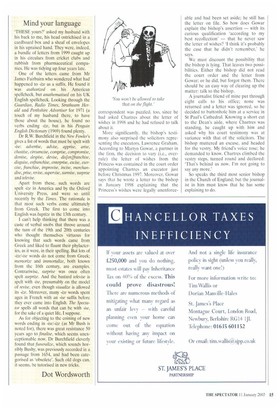Mind your language
'THESE yours?' asked my husband with his back to me, his head ostrichised in a cardboard box and a sheaf of envelopes in his upraised hand. They were, indeed, a bundle of letters from 1999 caught up in his circulars from cricket clubs and rubbish from pharmaceutical companies. He was tidying up four years late.
One of the letters came from Mr James Fairbairn who wondered what had happened to -ize as a suffix. He found it was authorized on his American spellcheck, but anathematised on his UK English spelicheck. Looking through the Guardian, Radio Times, Stratheam Herald and Perthshire Advertiser for 1971 (a touch of my husband there, to have those about the house), he found no verbs ending -ize, but in his Penguin English Dictionary (1969) found plenty.
Dr R.W. Burchfield in the New Fowler's gives a list of words that must be spelt with -ise: advertise, advise, apprise, arise, chastise, circumcise, comprise, compromise, demise, despise, devise, disienifirtnchise, disguise, enfranchise, enterprise, excise, exercise, franchise, improvise, incise, merchandise, prise, revise, supervise, surmise, surprise and televise.
Apart from these, such words are spelt -ize in America and by the Oxford University Press, and were so until recently by the Times. The rationale is that most such verbs come ultimately from Greek. The first to come into English was baptize in the 13th century.
I can't help thinking that there was a caste of verbal snobs that throve around the turn of the 19th and 20th centuries who thought themselves virtuous for knowing that such words came from Greek and liked to flaunt their phylacteries, as it were, in their spelling. But lots of -ize'-ise words do not come from Greek; memorize and immortalize, both known from the 16th century, are examples. Contrariwise, surprise was once often spelt swprize. And the bastard televise is spelt with -ise, presumably on the model of revise, even though visualize is allowed its -ize. Moreover, many -ize words spent ages in French with an -ise suffix before they ever came into English. The Spectator spells all words that can be with -ise, for the sake of a quiet life, I suppose.
As for objecting to the coining of new words ending in -ise/-ize (as Mr Bush is noted for), there was great resistance 50 years ago to finalise, which seems unexceptionable now. Dr Burchfield cleverly found that funeralize, which sounds horribly Bushy, was previously recorded in a passage from 1654, and had been categorised as 'obsolete'. Such old dogs can, it seems, be tutorised in new tricks.
Dot Wordsworth


























































 Previous page
Previous page